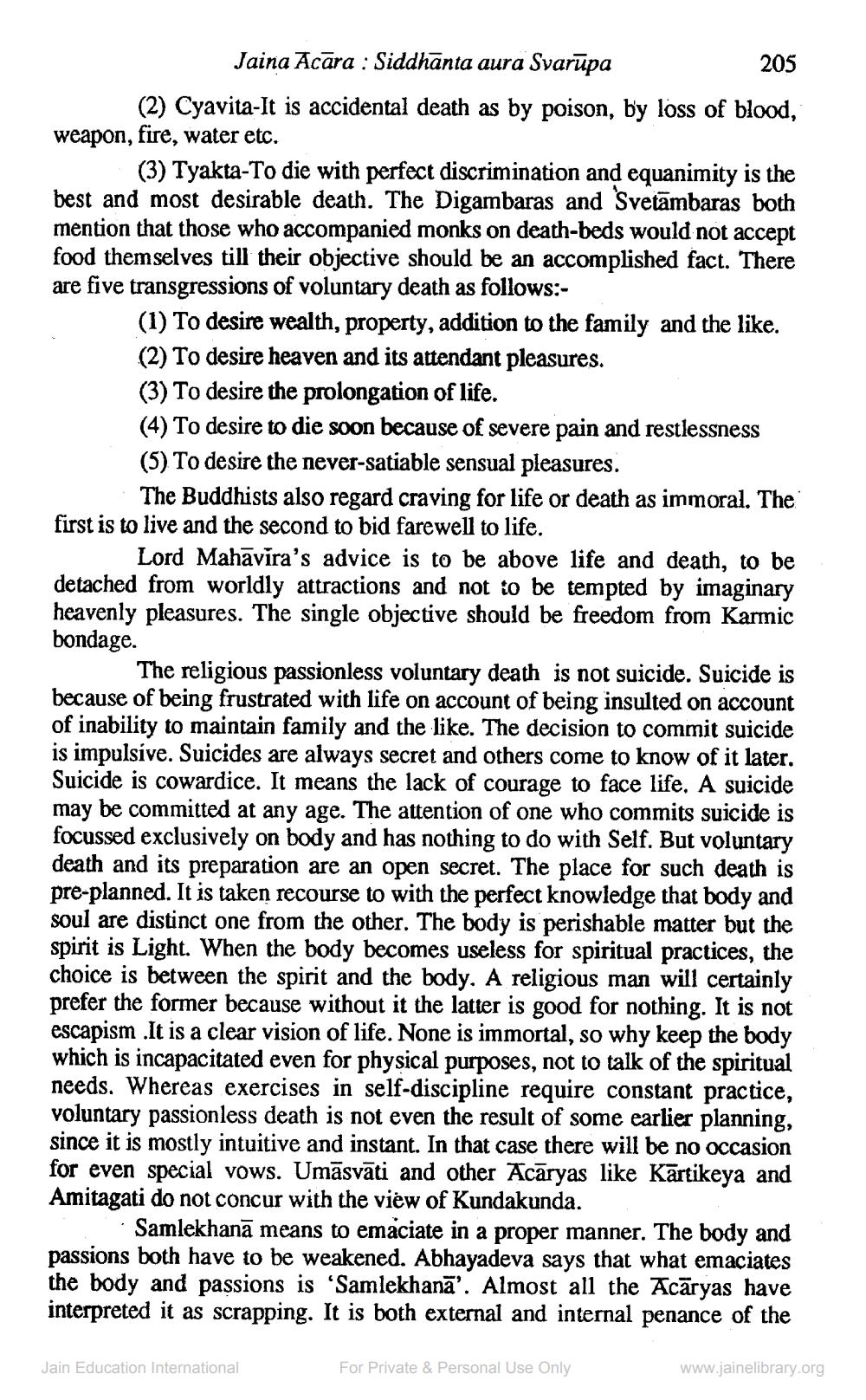________________
Jaina Acara: Siddhanta aura Svarupa
205
(2) Cyavita-It is accidental death as by poison, by loss of blood, weapon, fire, water etc.
(3) Tyakta-To die with perfect discrimination and equanimity is the best and most desirable death. The Digambaras and Svetambaras both mention that those who accompanied monks on death-beds would not accept food themselves till their objective should be an accomplished fact. There are five transgressions of voluntary death as follows:
(1) To desire wealth, property, addition to the family and the like. (2) To desire heaven and its attendant pleasures.
(3) To desire the prolongation of life.
(4) To desire to die soon because of severe pain and restlessness (5) To desire the never-satiable sensual pleasures.
The Buddhists also regard craving for life or death as immoral. The first is to live and the second to bid farewell to life.
Lord Mahavira's advice is to be above life and death, to be detached from worldly attractions and not to be tempted by imaginary heavenly pleasures. The single objective should be freedom from Karmic bondage.
The religious passionless voluntary death is not suicide. Suicide is because of being frustrated with life on account of being insulted on account of inability to maintain family and the like. The decision to commit suicide is impulsive. Suicides are always secret and others come to know of it later. Suicide is cowardice. It means the lack of courage to face life. A suicide may be committed at any age. The attention of one who commits suicide is focussed exclusively on body and has nothing to do with Self. But voluntary death and its preparation are an open secret. The place for such death is pre-planned. It is taken recourse to with the perfect knowledge that body and soul are distinct one from the other. The body is perishable matter but the spirit is Light. When the body becomes useless for spiritual practices, the choice is between the spirit and the body. A religious man will certainly prefer the former because without it the latter is good for nothing. It is not escapism .It is a clear vision of life. None is immortal, so why keep the body which is incapacitated even for physical purposes, not to talk of the spiritual needs. Whereas exercises in self-discipline require constant practice, voluntary passionless death is not even the result of some earlier planning, since it is mostly intuitive and instant. In that case there will be no occasion for even special vows. Umāsvati and other Acaryas like Kartikeya and Amitagati do not concur with the view of Kundakunda.
Samlekhana means to emaciate in a proper manner. The body and passions both have to be weakened. Abhayadeva says that what emaciates the body and passions is 'Samlekhana'. Almost all the Acaryas have interpreted it as scrapping. It is both external and internal penance of the
Jain Education International
For Private & Personal Use Only
www.jainelibrary.org




